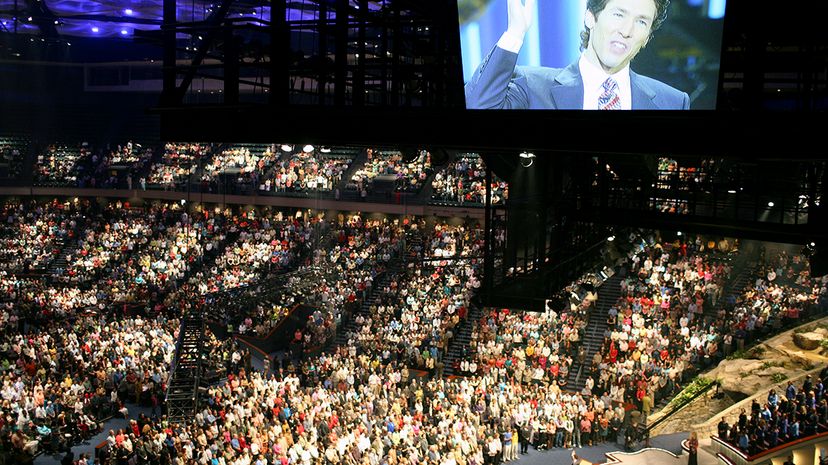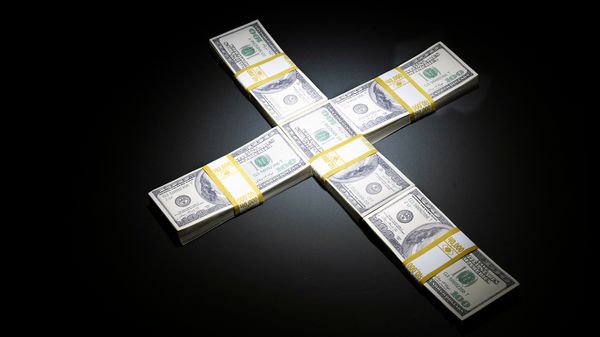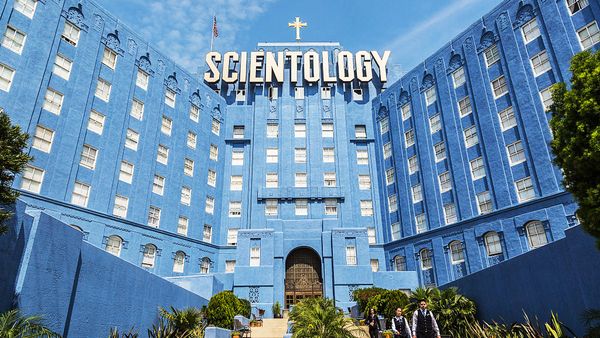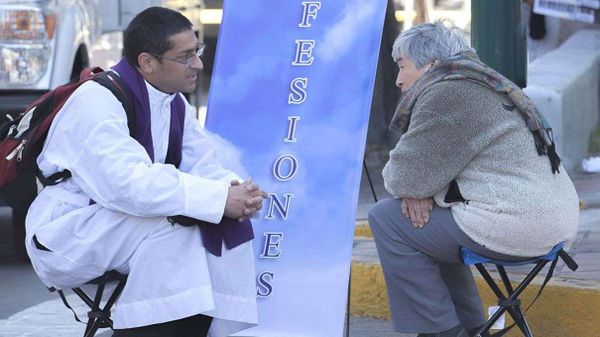
Uniquely American institutions, megachurches have grown by leaps and bounds, especially since the 1980s. These huge houses of worship, boasting thousands of members, often contain multitudes: meeting spaces, pools, movie theaters and roller rinks. By taking a more laid back, everyday approach to religion, these congregations have gained massive popularity even in today's increasingly secular world.
But the megachurch movement, and its ties with prosperity gospel and televangelism, has its dark side too. And that's what Stuff They Don't Want You To Know hosts Matt Frederick, Ben Bowlin and Noel Brown explore in The Sordid, Secret World of Televangelists and Megachurches.
Advertisement
Many megachurches are lauded by their followers as being welcoming, bringing religion to people on an approachable level. Services often become dazzling shows with music and fiery speeches. Many pastors preach a gospel that is as comfortable and easy to slip on as an old sweatshirt, stressing positive thinking as the way to the Lord's heart. It's this kind of theology that makes its way into countless self-help books, including the sensation of "The Secret." Will yourself to have something, and you will have it; picture yourself in a beautiful house, and God will provide.
On its face, there isn't much wrong with that — who among us has not shared a feel-good meme from author David "Avocado" Wolfe? But the real problem is the dark side to these cavernous cathedrals. Many megachurches preach a prosperity gospel, the idea that God wants us to be rich, and if you aren't, it's through some fault of your own. By tithing to the church as much money as possible, you show your faith in the Lord and it — according to the church — will return to you, the parishioner, a hundredfold.
Of course, only the pastors seem to be getting rich; many of them claim millions of dollars a year in salary, as well as perks like private jets or houses the size of hotels. The prosperity gospel has been blamed for the housing crisis of 2008 and criticized for preying on the poor, encouraging them to give to the church before paying rent or bills, telling them that the $65 million jets they're helping the pastor to purchase are God's will. Hashtag blessed.
Televangelism does this too, managing to reach many more thousands of parishioners due to their television presence. And even though famous televangelists like Jim Bakker in the 1980s spent years in jail for fraud, people continue to give them money. And let's not forget that these churches are tax-exempt, despite taking in millions of dollars.
According to many evangelicals, this gospel bears no resemblance to the teachings of Jesus, and are just a way for opportunists to take advantage of believers. So what do Matt, Ben and Noel believe? Listen to the entire podcast as they bear witness to the dark underbelly of this religious world and decide for yourself whether these churches are all about God or all about fraud.
Advertisement


